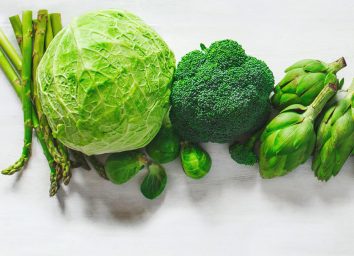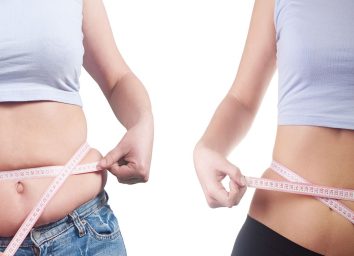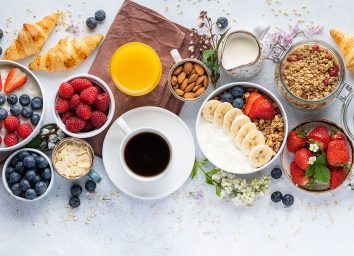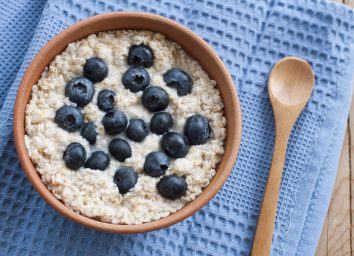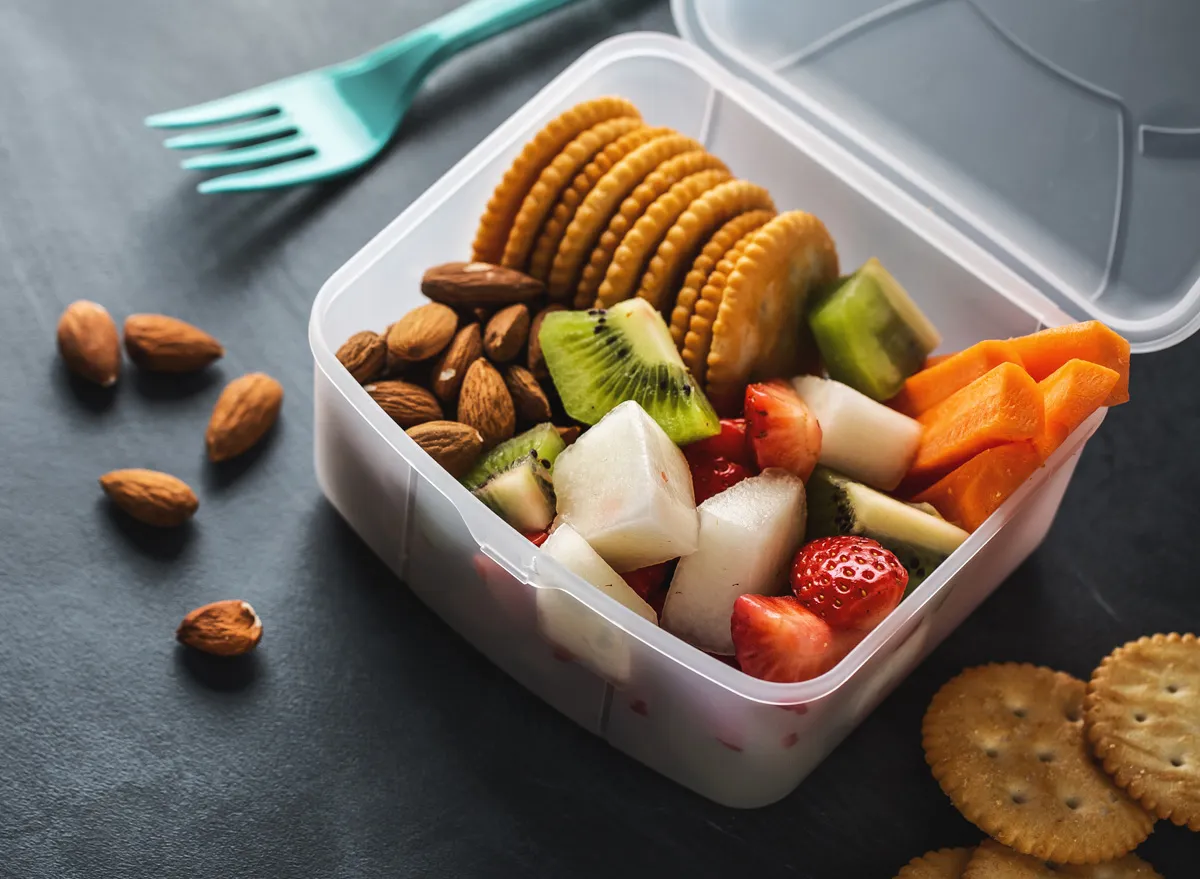
It's not uncommon to gain weight. In fact, it's natural. However, if you've identified that your weight gain is beyond what you think is healthy, then there are easy ways you can slim down—fast—without having to make massive changes. Better yet, you can actually lose weight in half the time as long as you integrate some of the following tips that actually double down on your weight loss efforts.
Read on for some truly easy pointers to shed those unwanted pounds once and for all, and you'll be armed with the ability to make your weight loss efforts more than twice as effective, too. If you're looking for more, check out these 15 Underrated Weight Loss Tips That Actually Work.
Weigh Yourself
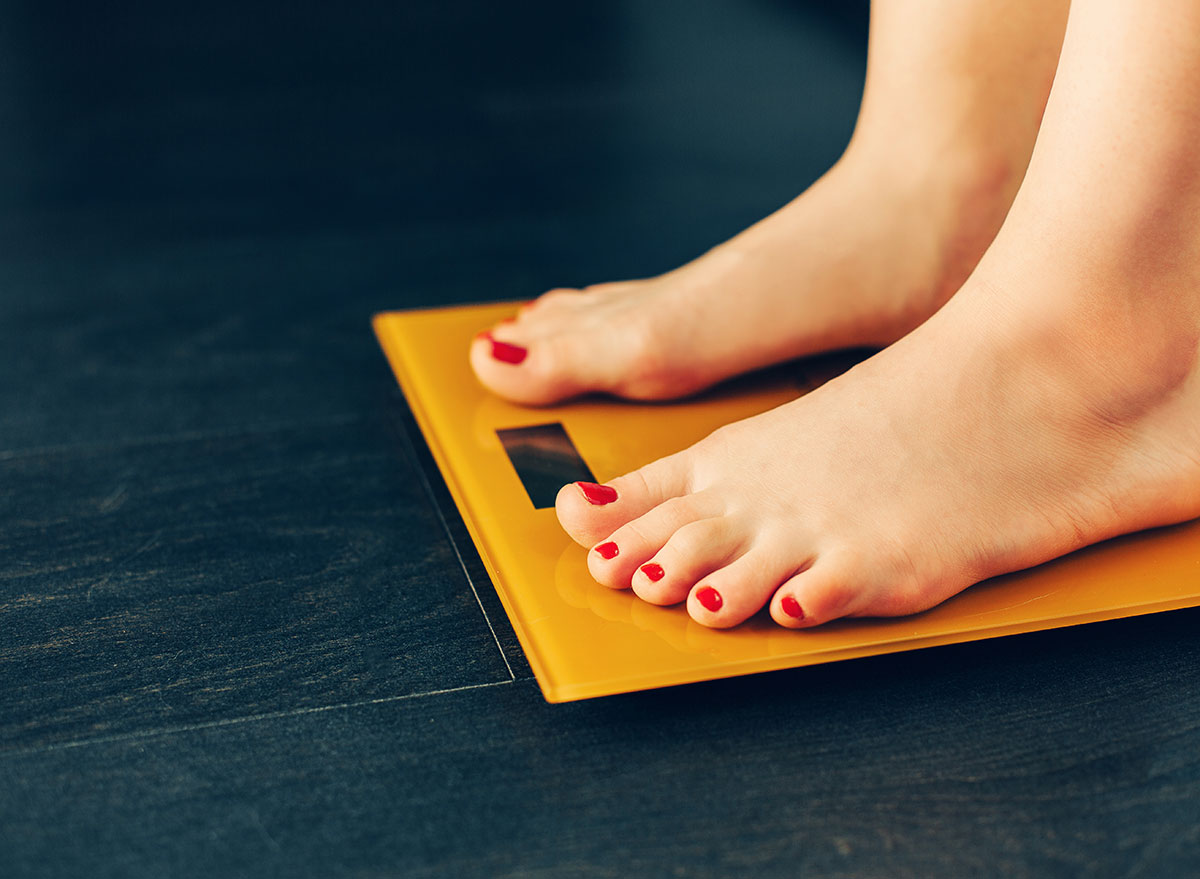
According to the Huffington Post, a two-year study conducted at Cornell University found that people who weighed themselves daily and recorded those results lost more body weight and better maintained that fat loss than those who didn't. Looking at your body weight frequently reinforces weight-loss goals and makes it more difficult to cheat on your diet. The study emphasizes how measuring and tracking can bolster fast, lasting fat loss, even doubling the amount of weight you might otherwise lose without keeping track. And for more weight loss tips, see 20 Ways to Overcome a Weight Loss Plateau.
Don't Skip Meals
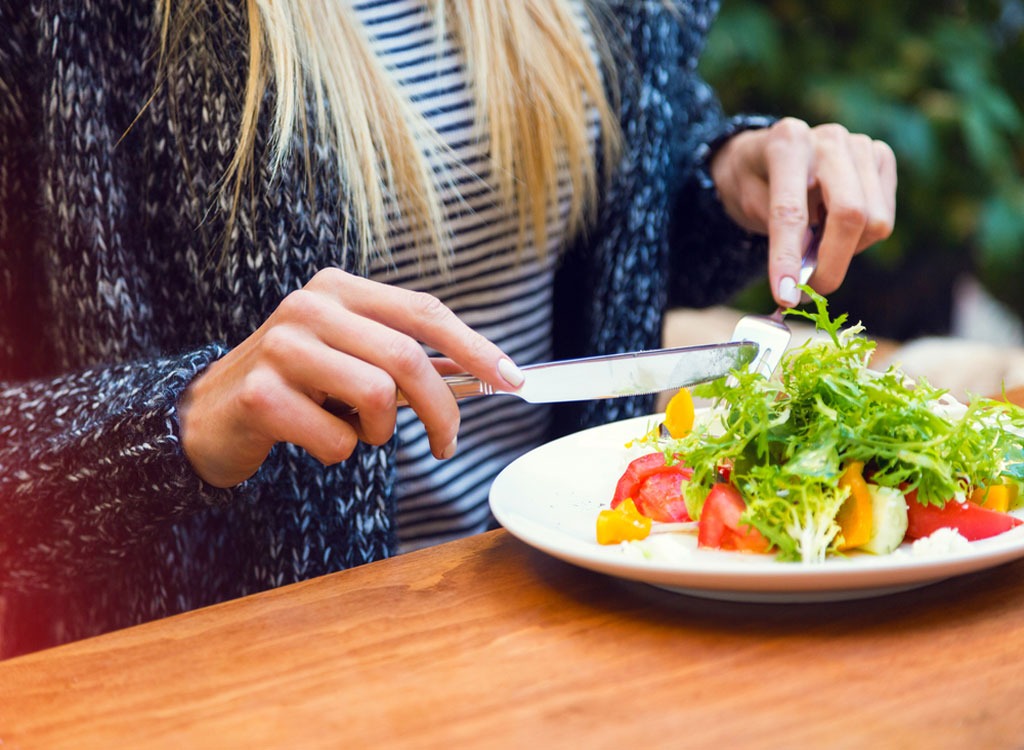
It's a common misconception that skipping meals leads to weight loss. You're technically consuming fewer calories in the moment, but more often than not, omitting a meal leads to out-of-control hunger and erratic eating habits that are no good for your metabolism. Simply put: Trying to reduce calories to lose weight doesn't work. There are too many other factors at play. And for a better idea of timing your meals, see This Is the Best Time to Eat Dinner, According to RDs.
Eat Three Balanced Meals a Day
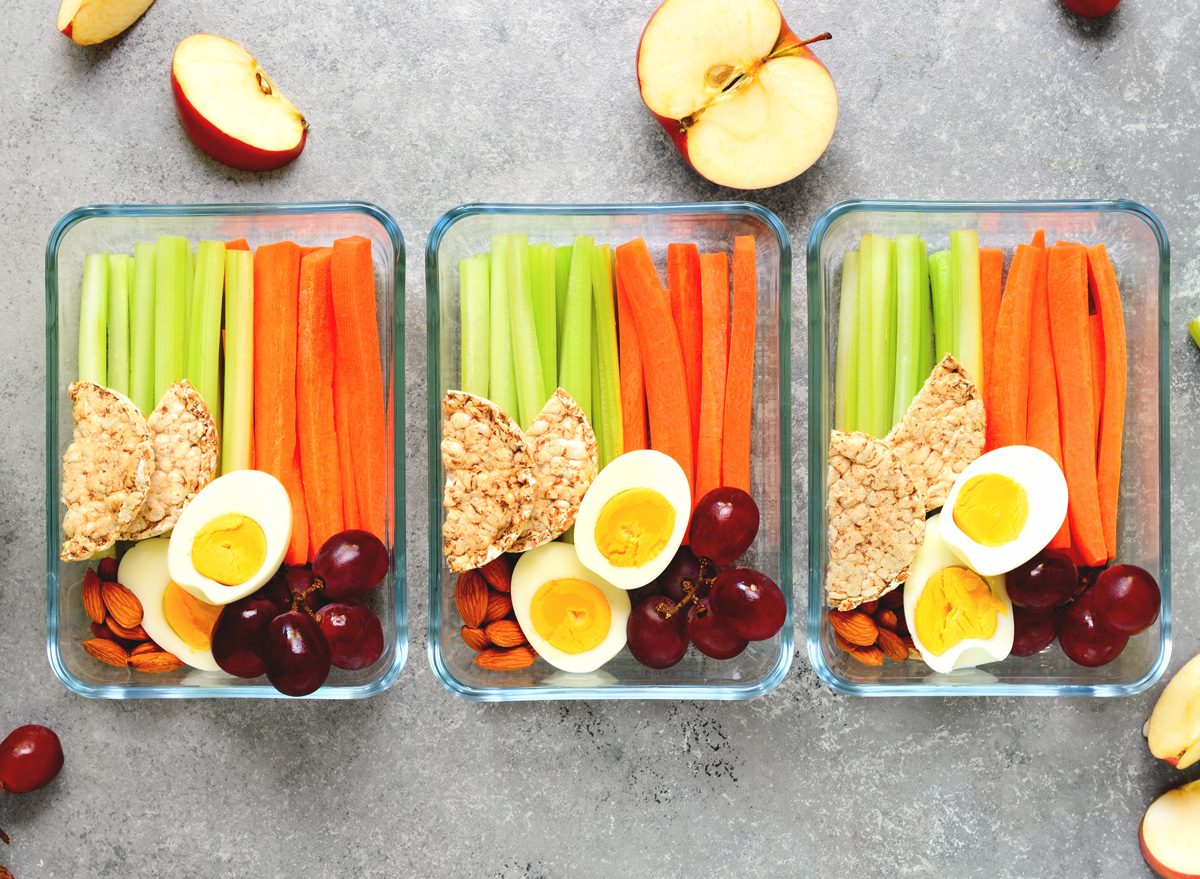
Each of these three meals (plus a snack) should contain a Power Protein (chicken, lean meat, fish, etc.) a flat-belly fat (olive oil, avocado) and a source of fiber, like lentils, beans or quinoa. This will ensure optimal weight loss, in part because it'll keep you full and prevent you from making bad food choices. And for some healthy weeknight meal ideas, see 20 Quick & Easy Dinner Recipes.
Watch Your Sugar Intake
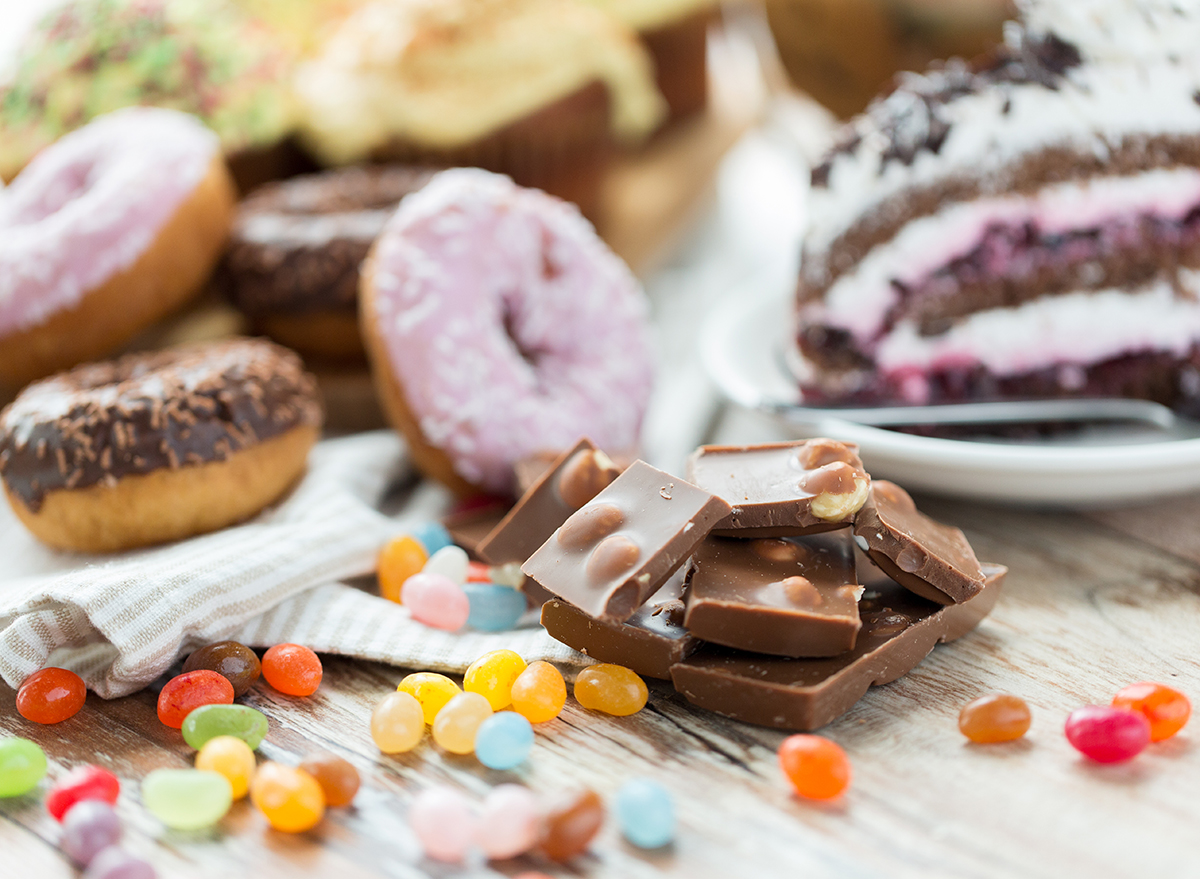
If you're looking for one thing to blame for those unwanted pounds, you can point a finger at sugar, which has wormed its way into everything from tomato sauce to Advil caplets. The American Heart Association and the World Health Organization recommend no more than 25 grams of added sugar a day—about six sugar packets— for optimal health, but most people ingest much more than that.
And just so you're up to date, be sure to sign up for our newsletter to get the latest food news delivered straight to your inbox.
Add More Fiber to Your Diet
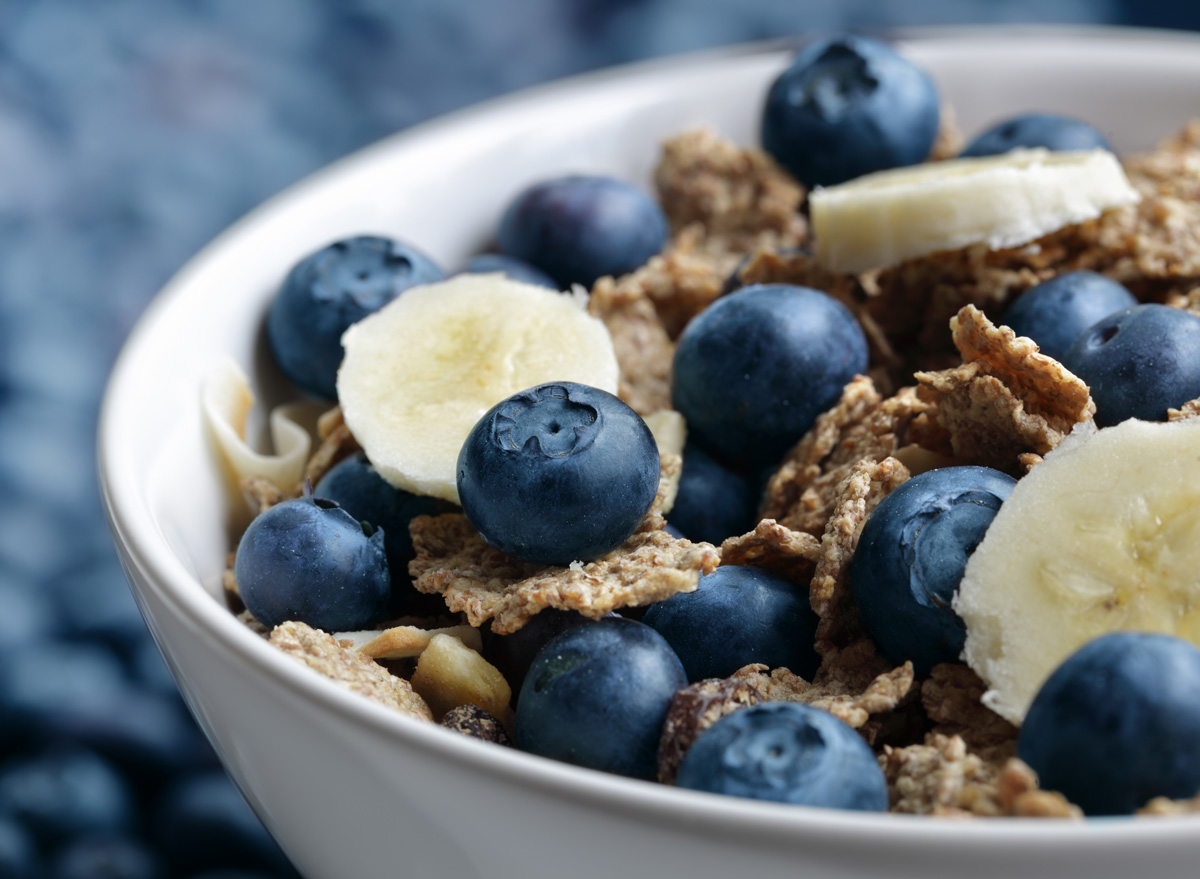
This crucial nutrient helps you feel fuller longer, meaning the more fiber you incorporate into your diet, the less likely you are to reach for those mid-afternoon chips or cookies. If you're looking for a hassle-free way to shed pounds quickly, lower your sugar intake and eat more fiber than sugar. This simple change to your diet will have you losing belly fat almost immediately, and rapidly to boot. Need some ideas? See 20 Easy Ways to Add Fiber to Your Diet.
Know How to Really Read a Nutrition Label

When you're buying packaged food, it's very easy to take note of the calorie count and little else, but just because something is low in calories doesn't mean it'll be good for your waistline in the long run. In fact, many low-cal foods are packed with added sugar, meaning they're actually causing you to gain weight. Look for foods with more fiber than sugar if you want to lose weight. High-protein foods are good too. For more expert advice, check out these 20 Tips For Finally Understanding Nutrition Labels.
Act Quickly
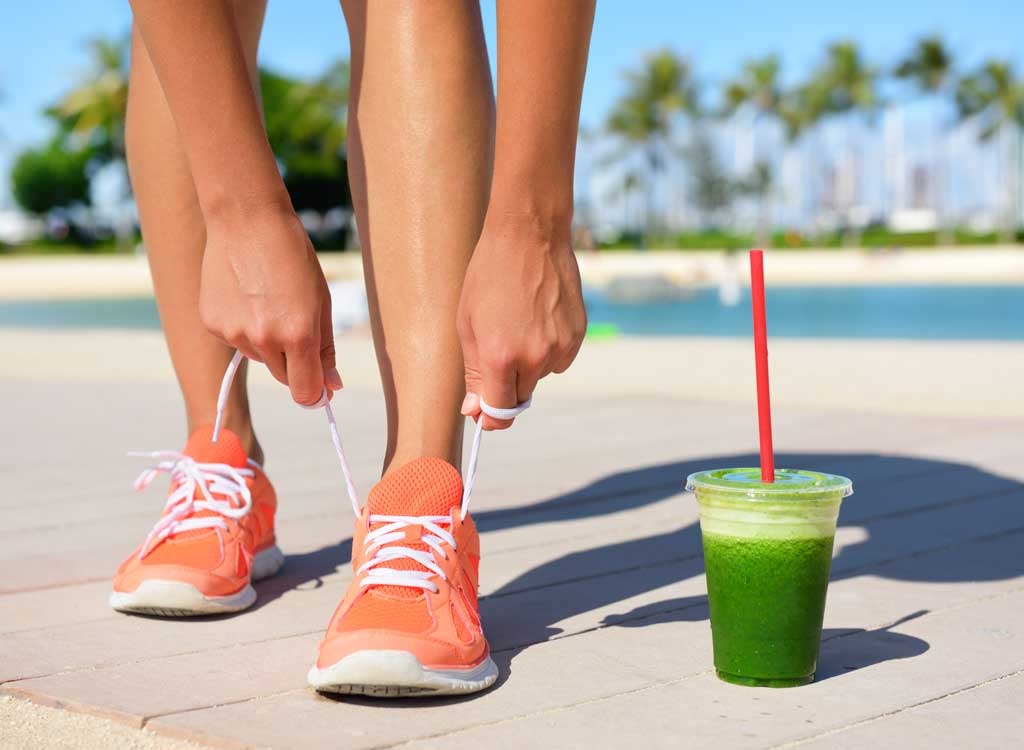
If you start the Zero Sugar Diet, you'll see results in just days. And though we've been lead to believe rapid weight loss is actually damaging, according to a 2013 study in the International Journal of Behavioral Medicine, you're more likely to succeed in your long-term weight-loss goals if you start out of the gate by dropping pounds rapidly. And for more tips on dropping pounds, see 40 Tips Nutritionists Say You Must Follow to Lose Weight.
Pack on the Protein
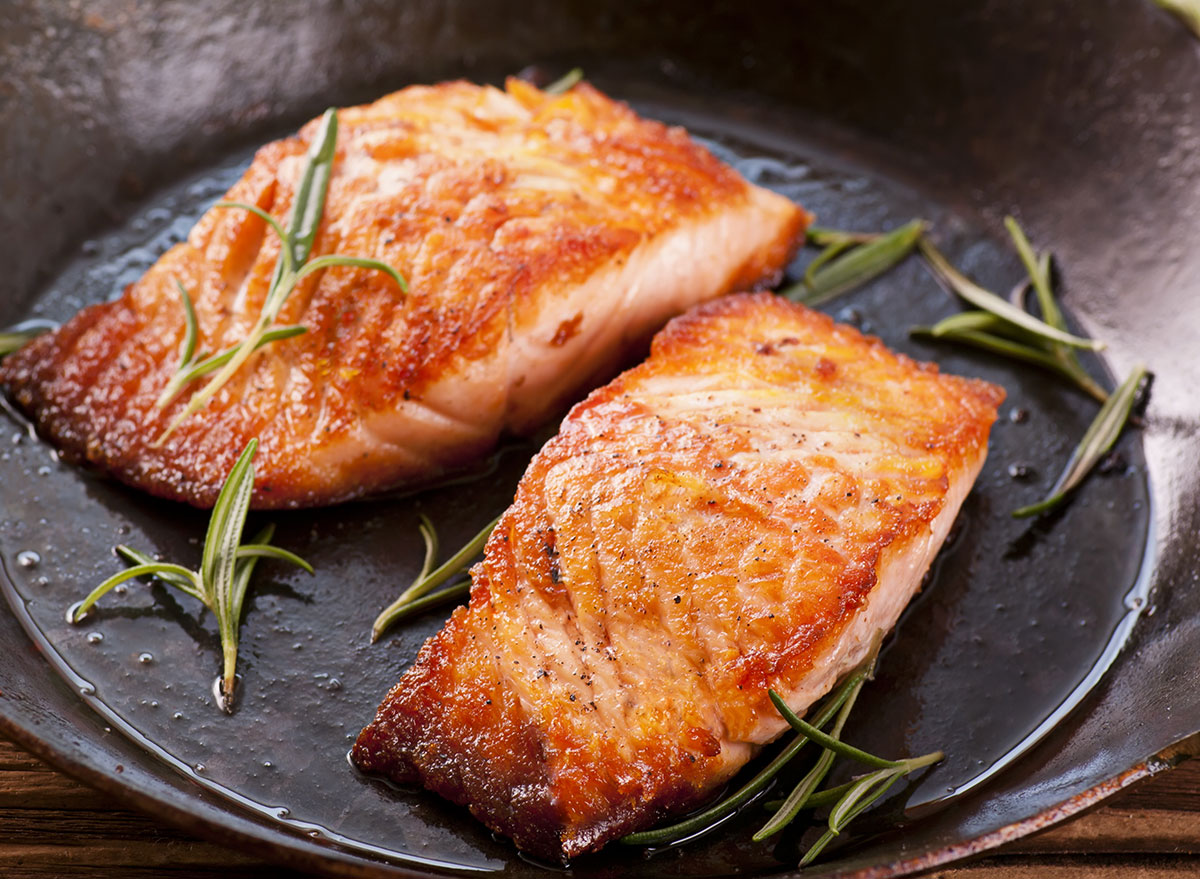
Much like fiber, protein is also an important component to a balanced diet, especially if you're looking to lose weight. Research has shown that doubling your protein intake can help you drop pounds without losing muscle mass, so make sure all your meals are high in protein (think lean meat, fish, and soy) and fiber but low in starch and sugar. Here's everything you need to know on How to Eat Protein for Maximum Weight Loss.
Know Your Food Combos
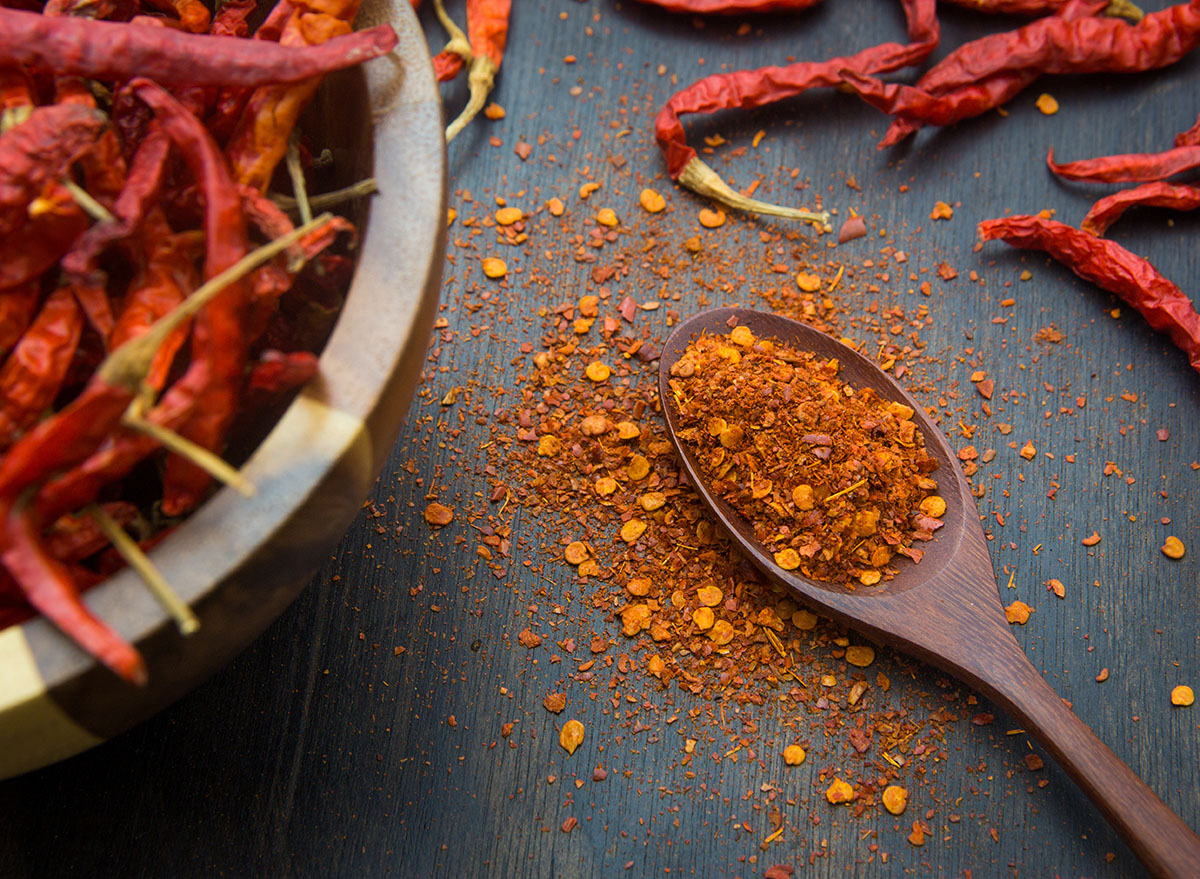
Once you've got the whole fiber/sugar balance down, it's important to know what food combos can help your waistline continue to shrink. Cayenne powder and chicken, for example, pair well together because protein-rich foods can significantly boost post-meal calorie burn, and chili peppers are great at blasting away belly fat. Another great combo is bell peppers and eggs. We smell a veggie omelet in your future!
Get Your Antioxidants
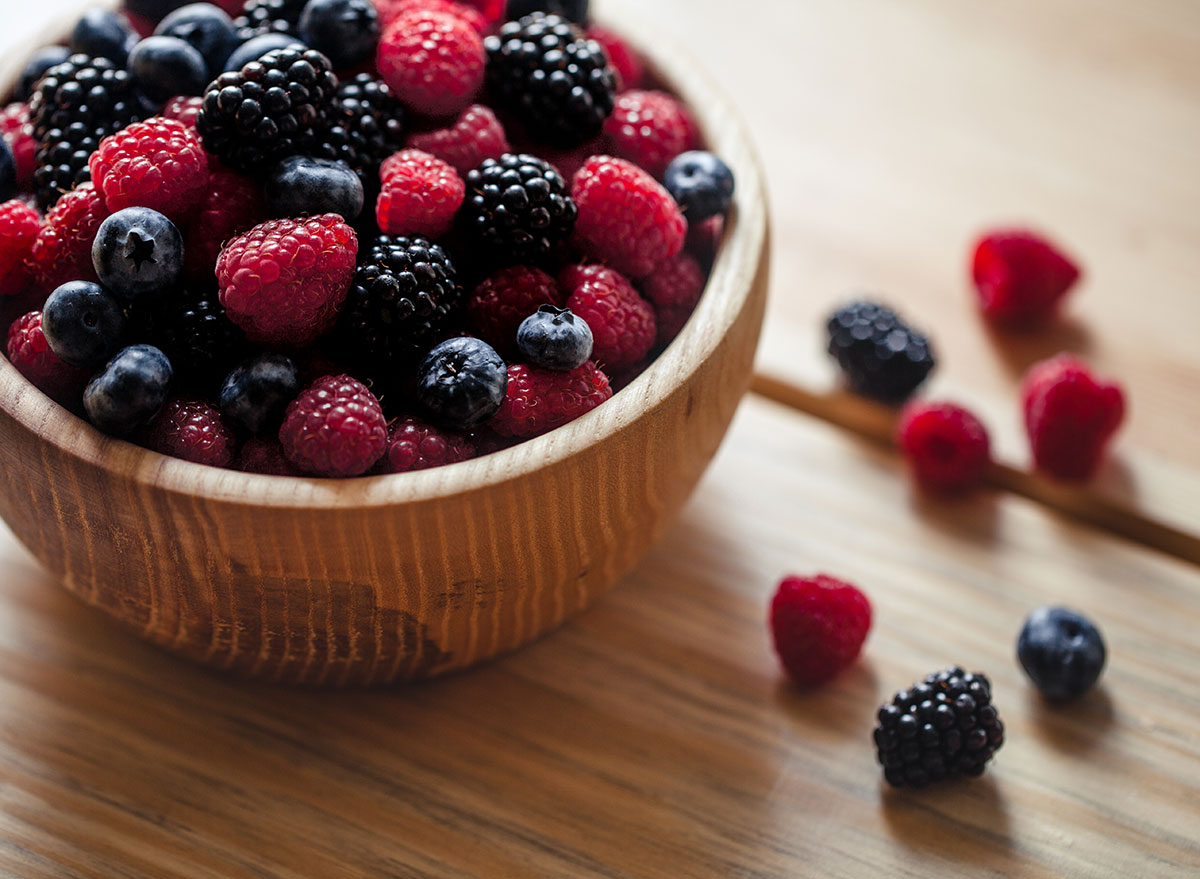
Not only do antioxidants minimize the appearance of wrinkles and help you look younger, but they also can stop fat from forming. Eat antioxidant-rich foods like berries, artichokes and kidney beans (which are also high in fiber!) to double your weight loss.
Read more: 15 Most Antioxidant-Packed Fruits & Veggies—Ranked!
Go Nuts For Nuts

Nuts get a bad rap because of their high calorie count, but research actually shows that eating pistachios instead of carb-based snacks can accelerate weight loss. Almonds are similarly beneficial if eaten prior to a workout, because they contain amino acids that help fry belly fat. Stock up on the 6 Best Nuts for Weight Loss.
Know the Good Fats
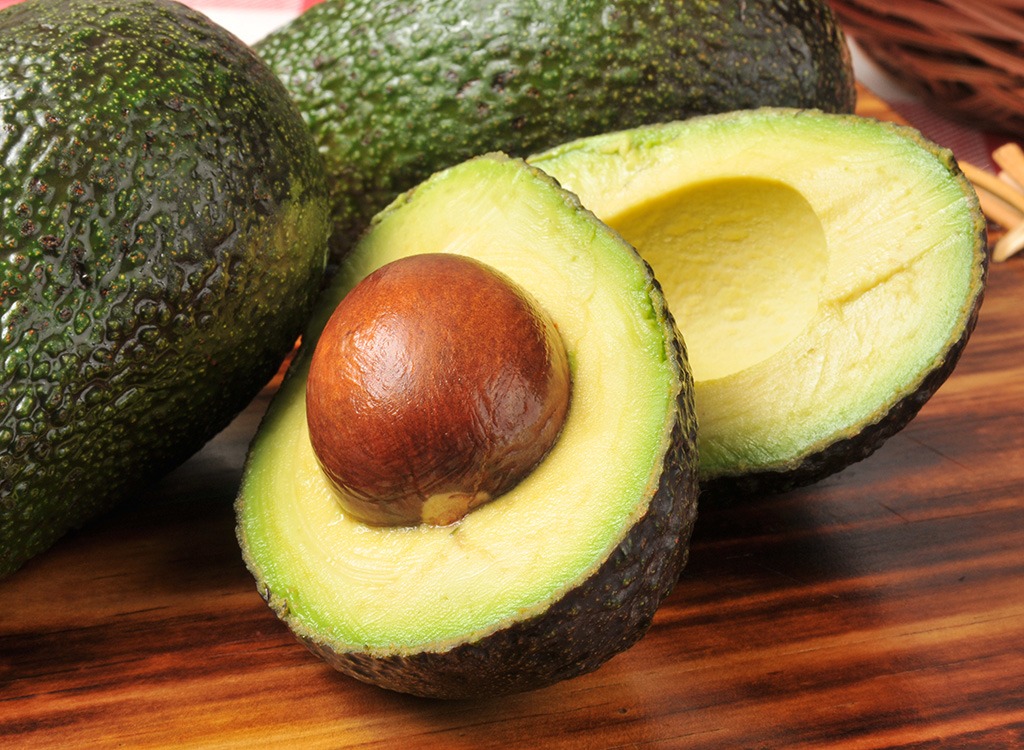
Eating fats to lose weight may seem counterintuitive, but if you know which fats to eat, you can increase your weight loss. To drop pounds, eat foods high in monounsaturated fat, like avocado oil, macadamia nuts and black or green olives. They'll help ward off hunger and keep you slim!
Find the Foods That Work For You and Stick to 'Em
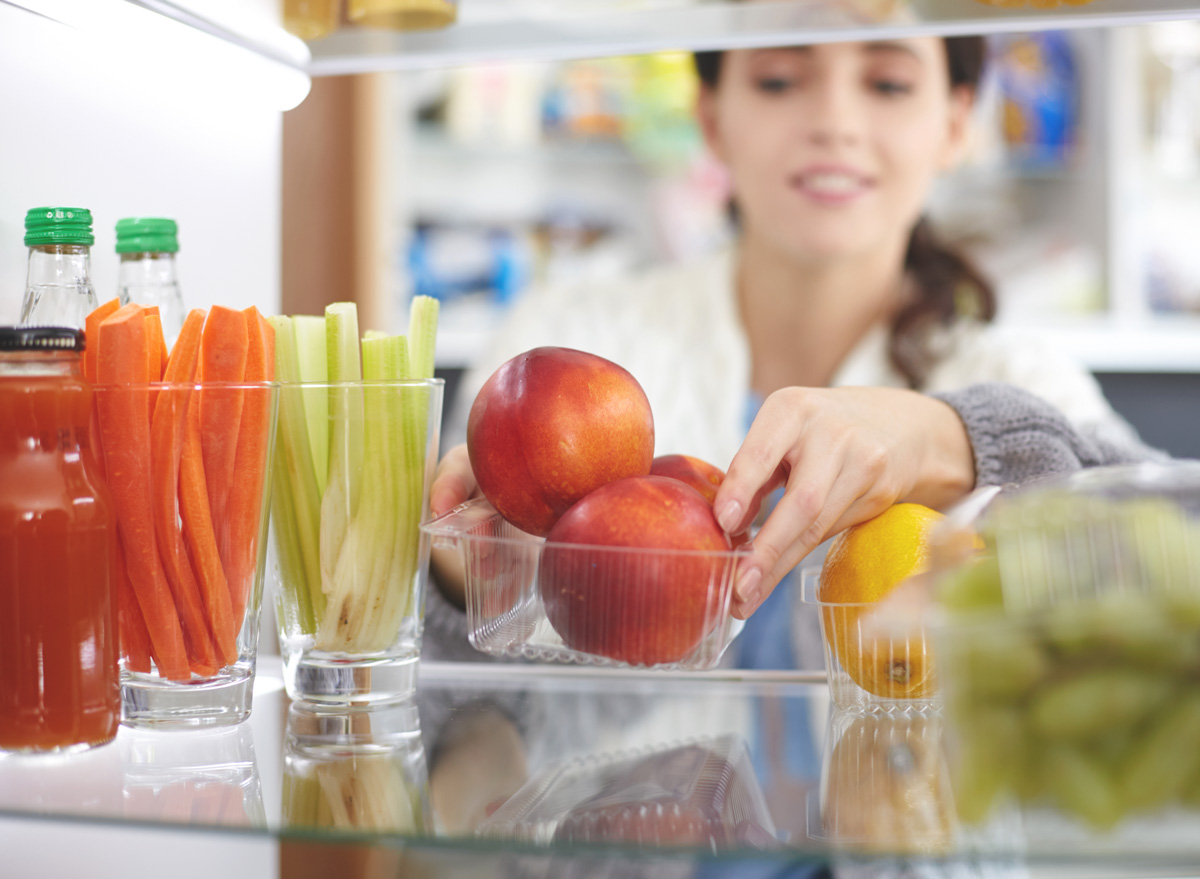
As David Zinczenko writes in Zero Sugar Diet, there's something to be said for eating foods you like again and again, assuming you don't subsist on ice cream sundaes and chicken nuggets. When researchers looked at the diets of 6,814 people, they found the more diverse one's diet, the more likely one was to experience weight gain. In fact, those who ate the widest range of foods showed a 120 percent greater increase in waist circumference compared with those who had the least diversity. In other words, people who have the best success at weight loss pick a set number of foods and tend to stick to them. Choose from these Essential Foods to Lose Weight!
Drink Responsibly
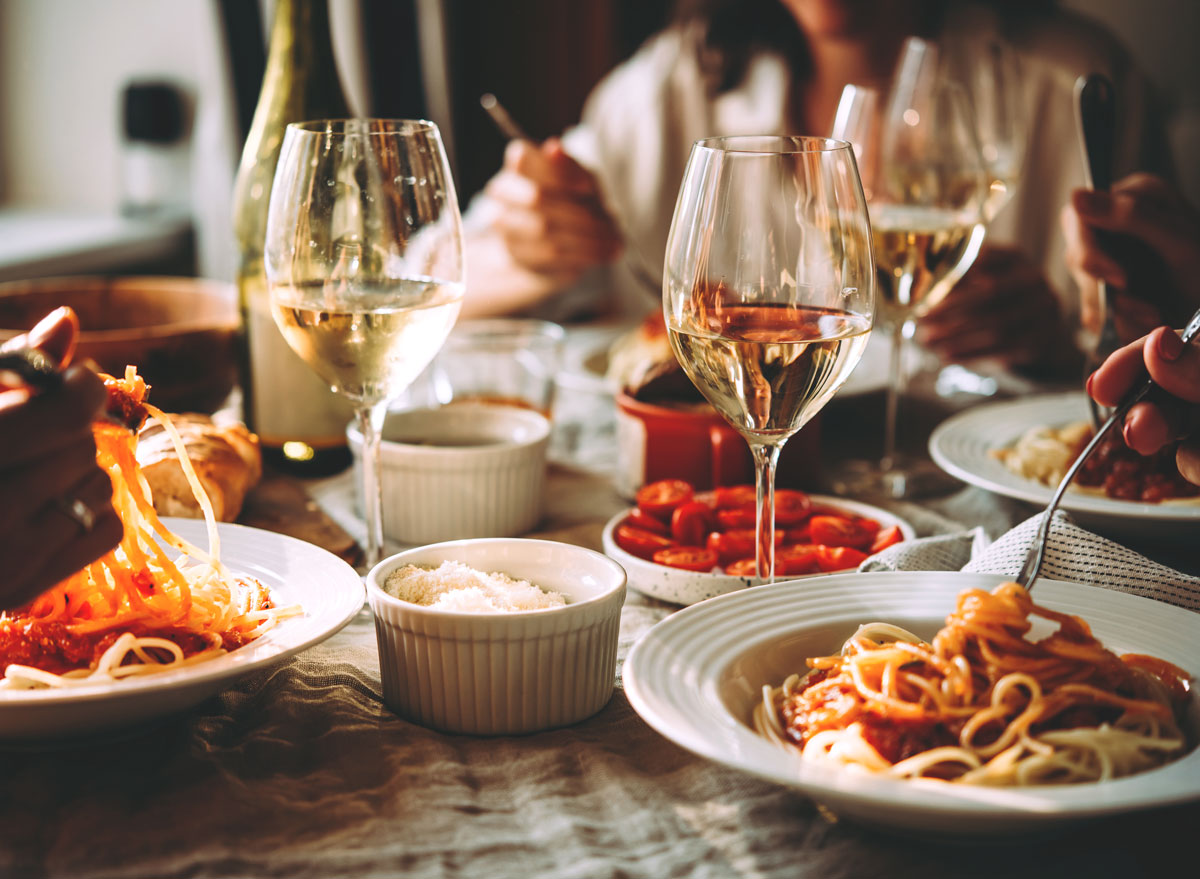
Mixed and/or frozen drinks are usually packed with hundreds of empty calories, so if you're looking for a buzz, opt for a glass of red or white wine instead. Just try and limit yourself to one 5-ounce glass per day. After all, alcohol does have healthy benefits!
Snack Smart

Believe it or not, snacking and weight loss go hand-in-hand. Studies show people who consciously refrain from eating between meals may end up consuming more calories overall during the day, often because their energy stores run low, and that leads them to make bad choices. When you snack, make sure you do so responsibly. Stick to high-fiber, high-protein treats like plain, air-popped popcorn and hummus. Check out these 50 Best Healthy Snacks to Buy for Weight Loss for more!
Use Smaller Dishes
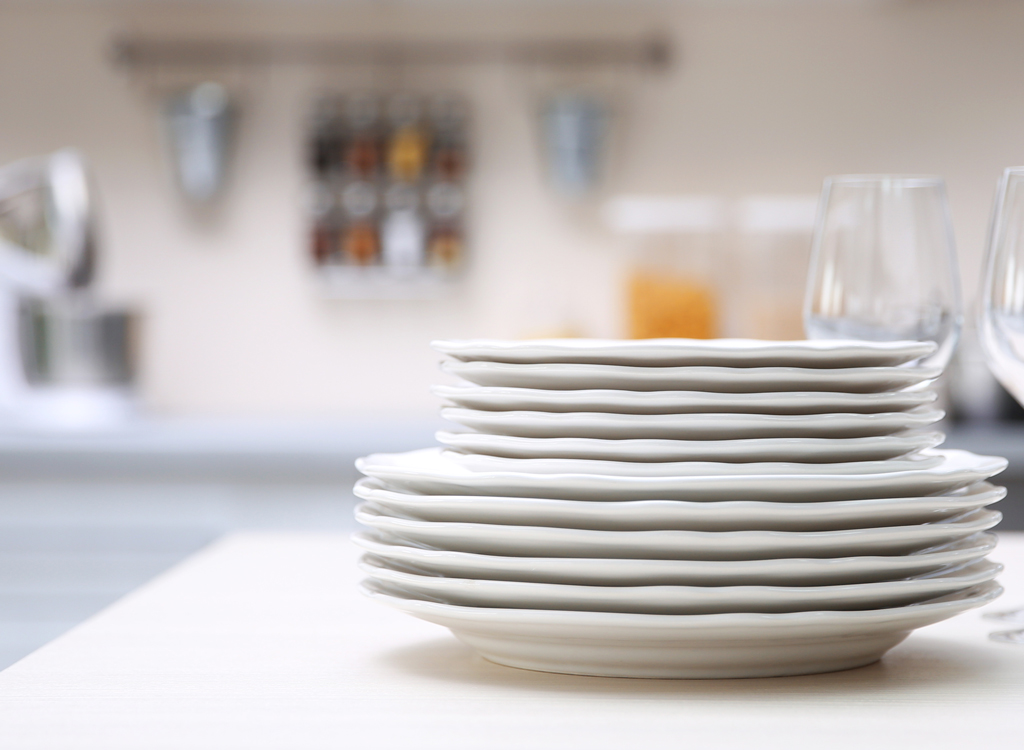
Whether you're snacking or preparing a meal, using smaller plates and bowls is an easy way to reduce your portion size and ensure you don't overeat. Feel free to fill up smaller dishes with fiber, protein, etc. without feeling guilty.
Get a Good Night Sleep

According to Wake Forest researchers, dieters who sleep five hours or less a night put on two and a half times more belly fat, while those who sleep more than eight hours pack on only slightly less than that. But when you have a regular bedtime and stick to it, you set yourself up for day-in, day-out weight loss. Shoot for an average of six to seven hours of sleep per night—the optimal amount for weight control. Regulating your sleep schedule could slash 200 calories a day.
Know the Importance of Strength Training
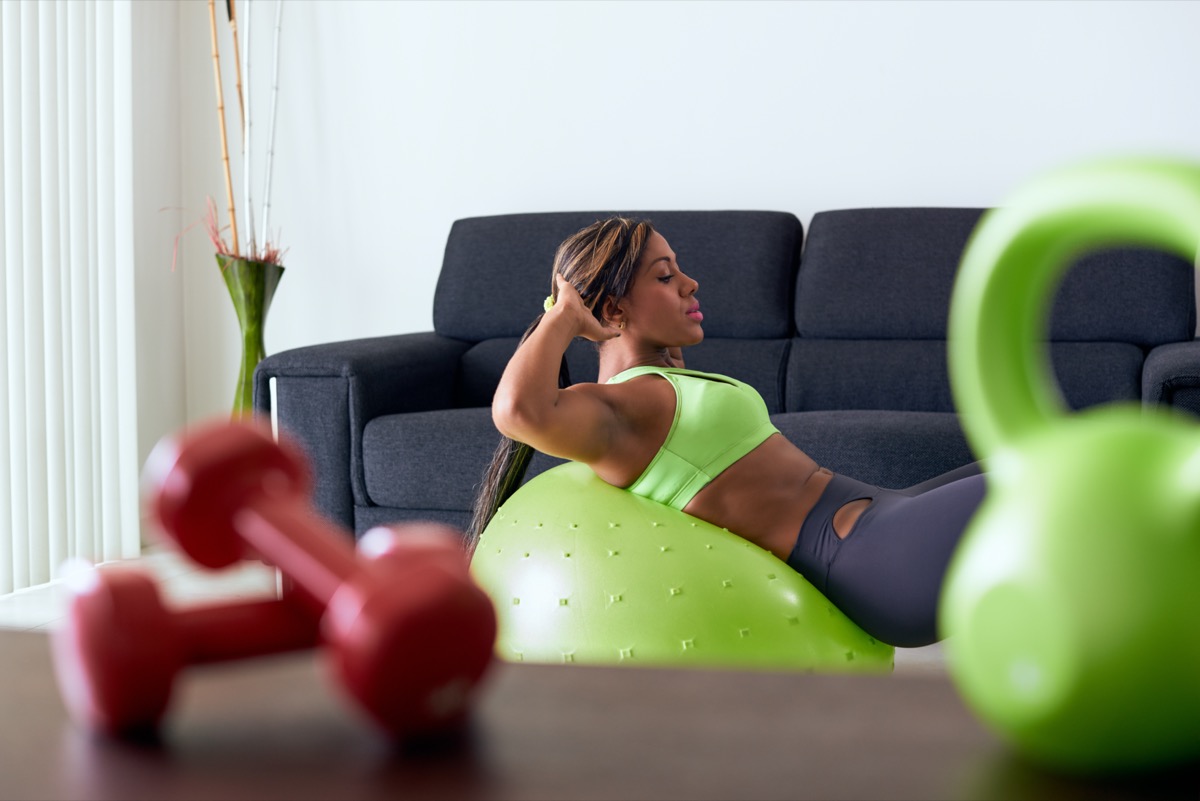
Strength training workouts lead to strong muscles and offer many other health and weight-loss benefits. They also boost your energy level, making everyday tasks easier. And the more energy you have, the more likely you are to remain active instead of parked in front of the TV with junk food.
Complete Interval-Training Cardio Workouts

Cardio workouts are another great way to boost your fat-burning metabolism and improve your health without sacrificing muscle. But instead of hopping on the treadmill and staying at one pace, alternate short bursts of faster, high-intensity activity with bouts of slower, less-intensity "recovery" periods. Many studies have shown this type of exercise is highly effective for weight loss and targeting belly fat, but avoid these 12 Worst Cardio Mistakes for Weight Loss.
No Cheating
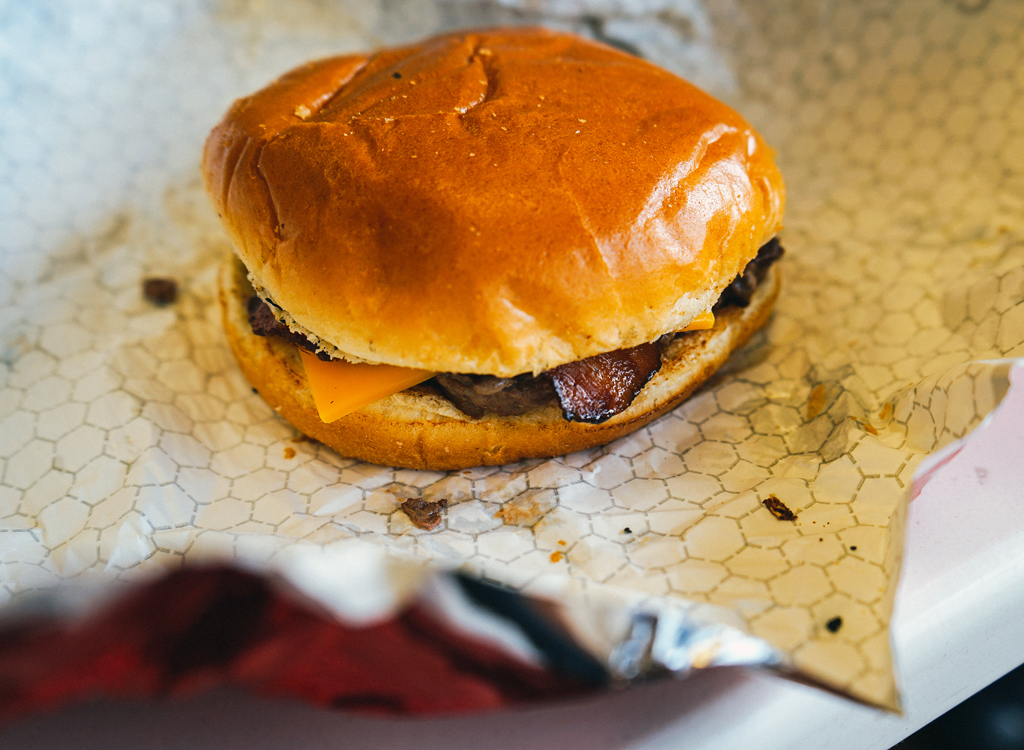
"Cheat meals" are a common gimmick a lot of diet plans use to help people deal with the challenges of sticking to a strict diet program, but they break your weight loss momentum and can also damage your health. In a 2015 study in The FASEB Journal, researchers took blood samples from volunteers who were struggling with obesity and those who were lean and healthy. Of course, the samples showed different readings in terms of cholesterol and blood sugar. Then, both groups were given a high-calorie shake. When blood was taken from them after the shake, those whose readings had been healthy earlier showed the same sort of elevated risk factors for heart disease and diabetes as the unhealthy group.
Don't Watch Too Much TV

A University of Vermont study found overweight participants who reduced their TV time by just 50 percent burned an additional 119 calories a day on average. That's an automatic twelve-pound annual loss! Maximize those results by multitasking while you watch— even light household tasks will further bump up your caloric burn. And if you must snack while watching TV, munch on these 7 Best Fat-Burning Foods.
Drink Ice Water
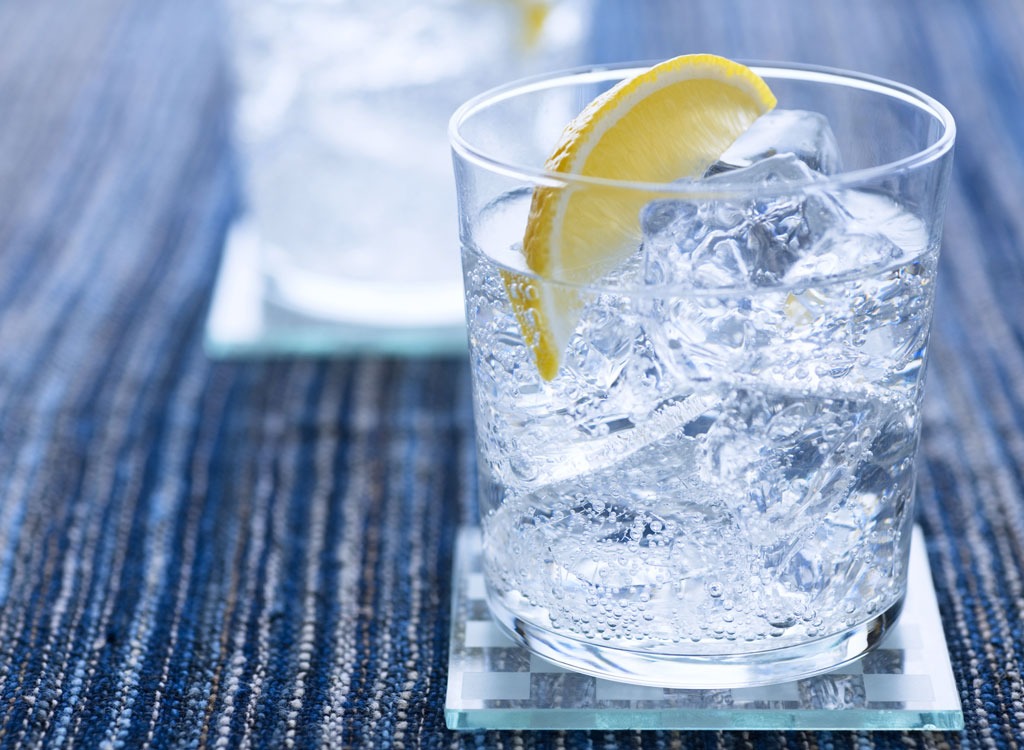
In one University of Utah study, dieting participants who were instructed to drink two cups of water before each meal lost 30 percent more weight than their thirsty peers. Part of the reason: If you're not drinking ample water, your body may have to store carbs as fat. Your body cannot efficiently change carbs into energy without ample water. To boost the calorie-burning effects of H2O, add ice. German researchers found that six cups of cold water a day could prompt a metabolic boost that incinerates 50 additional daily calories. You'll also want to see This Is How Much Water You Need to Drink for Weight Loss.
Order First at Restaurants

If you want to take charge of your weight, take charge of your restaurant order. A University of Illinois study found that groups of people tend to order similarly, especially when forced to say their order out loud. (Here's how you to eat at any restaurant and still lose weight.) Conversely, research from The New England Journal of Medicine indicates when a friend becomes obese, it ups your chance of obesity by 57 percent.
Avoid Stress Eating
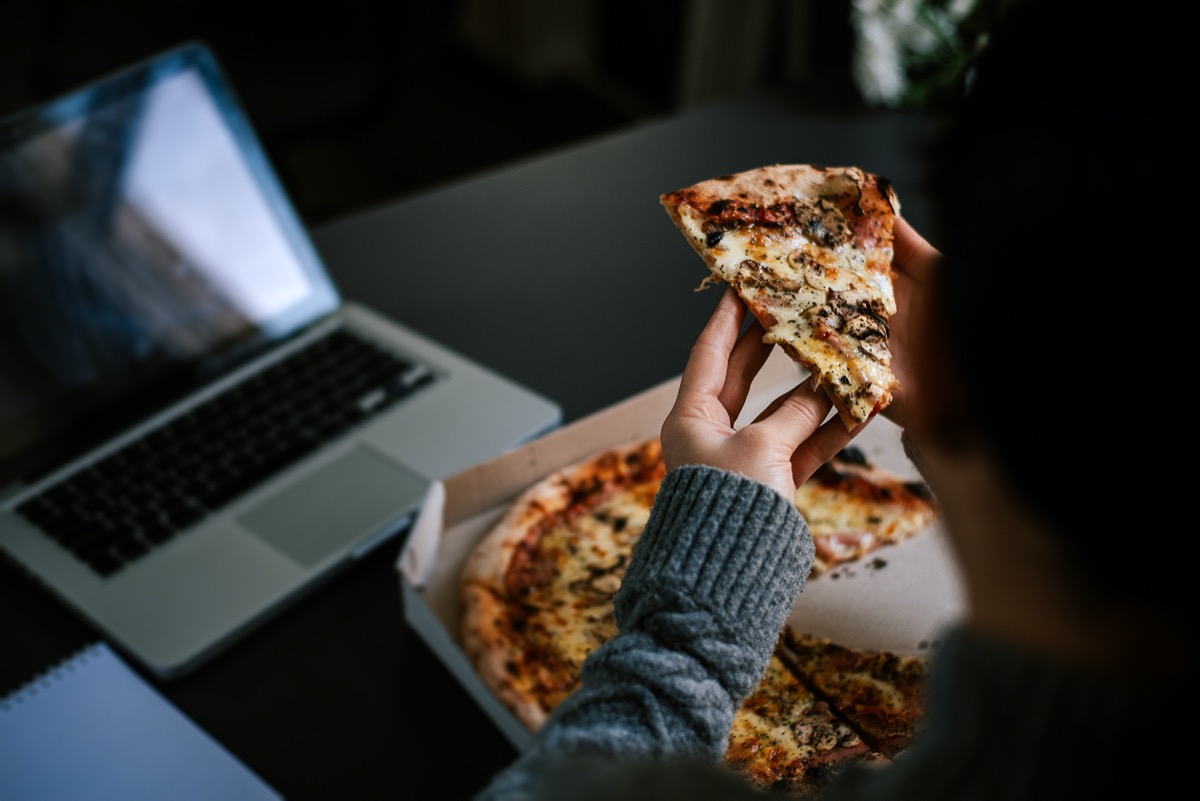
A study from the University of Alabama found emotional eaters—those who admitted eating in response to emotional stress—were thirteen times more likely to be overweight or obese. If you feel the urge to eat in response to stress, try chewing a piece of gum, chugging a glass of water, or walking around the block. Create an automatic response that doesn't involve food and you'll prevent yourself from overloading on calories.
Get Outside Every Morning

In studies, sun exposure between 8:00 a.m. and noon is associated with higher fat burning and significantly lower BMIs, regardless of exercise, calorie intake, sleep, or even age. One reason people tend to gain weight in the winter is because they aren't outside as much. If mornings are hectic, at least open the blinds in the a.m., especially at work. Employees with windows near their desks receive 173 percent more white light exposure during work hours and forty- six more minutes of sleep per night than employees who don't have exposure to natural light. And those without windows get less physical activity.
Eat Grapefruit
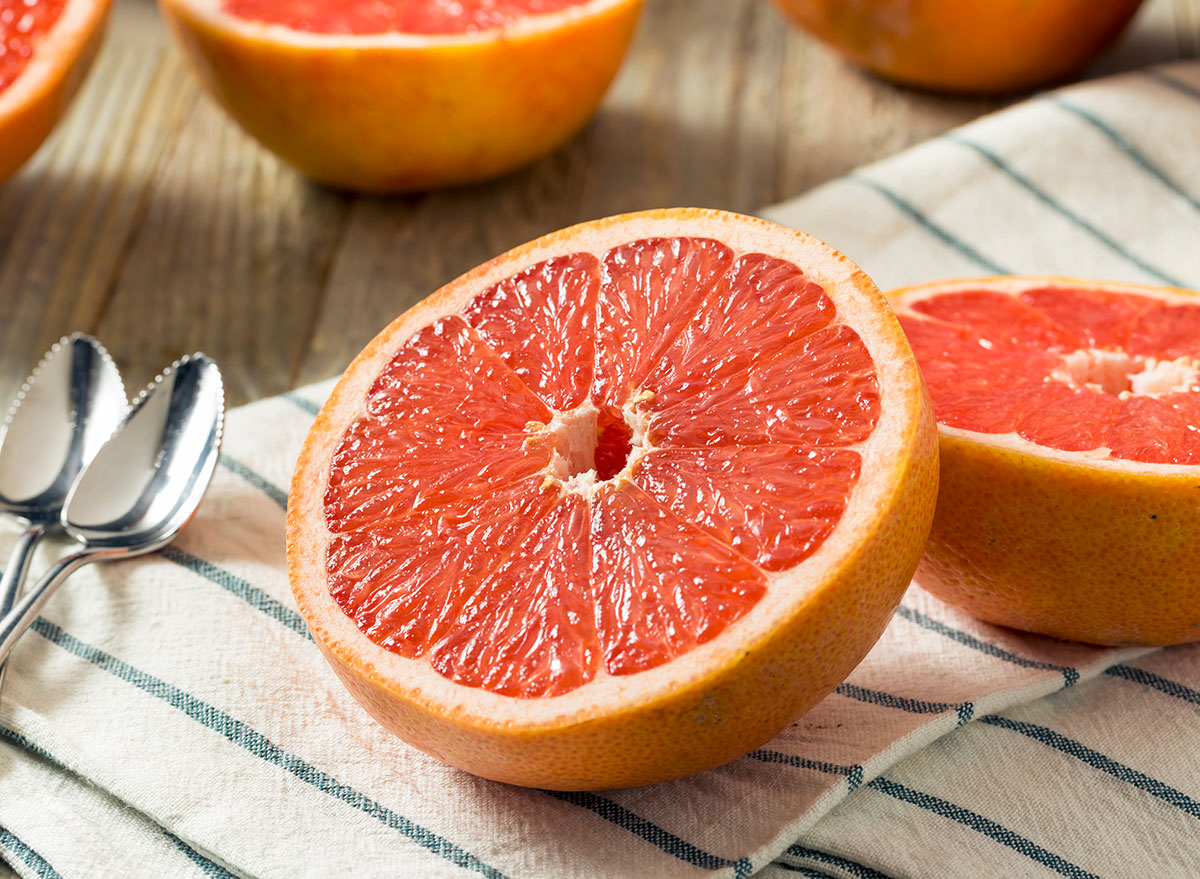
Grapefruit has a particularly powerful effect on weight loss. A study printed in the journal Metabolism found that eating half a grapefruit before meals may help reduce visceral fat and lower cholesterol levels. Participants in the six-week study who ate a Rio Red grapefruit fifteen minutes before breakfast, lunch, and dinner saw their waists shrink by up to an inch, and LDL levels drop by 18 points. Researchers attribute the effects to a combination of phytochemicals and vitamin C in the grapefruit. Check out these 20 Grapefruit Recipes for Weight Loss here.
Embrace Business Casual

A study by the American Council on Exercise suggests casual clothing, as opposed to conventional business attire, can increase physical activity levels in our daily routines. Participants in the study took an additional 491 steps and burned 25 more calories, on days they wore jeans than when wearing traditional suit wear. That may sound trivial, but the calories add up! Researchers say keeping it casual just once a week could slash 6,250 calories over the course of the year—enough to offset the average annual weight gain (0.4 to 1.8 pounds) experienced by most Americans.
Leave Encouraging Notes For Yourself

If you're trying to lose weight, subtle, even subliminal, messages may be more effective at helping you stick to a healthy eating regimen than even ongoing, conscious focus, found a 2015 study in the Journal of Marketing Research. The study found people who receive reinforcing notes urging them to eat healthily were more likely to make smarter choices than those who tried to keep their goals top of mind at all times.
Say No to the Bread Basket
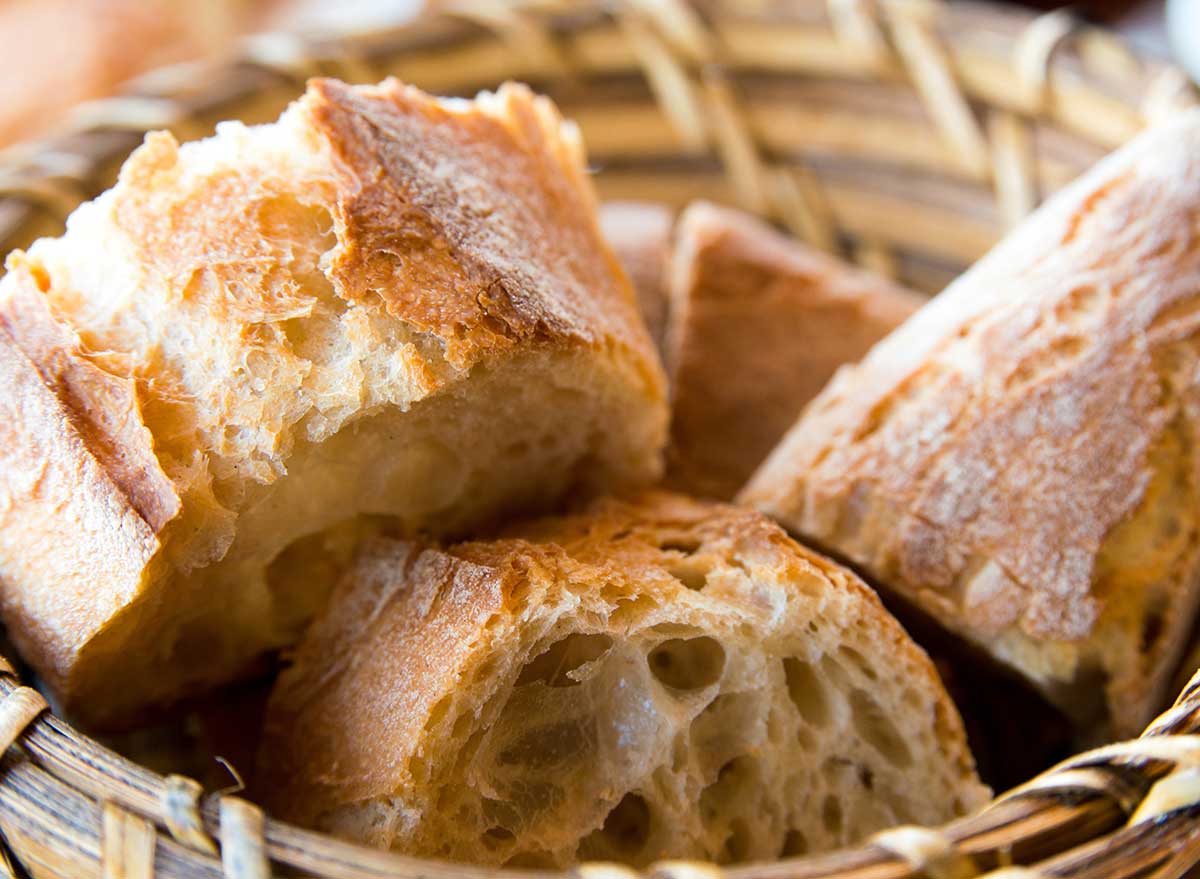
Dining out while dieting is tough, but one way to ensure you stay on track is to turn down the beginning of the meal bread basket. Breadsticks, biscuits, and chips and salsa may be complimentary at some restaurants, but that doesn't mean you won't pay for them. Every time you eat one of Olive Garden's free breadsticks or Red Lobster's Cheddar Bay Biscuits, you're adding an additional 150 calories to your meal. Eat three over the course of dinner and that's 450 calories. That's also roughly the number of calories you can expect for every basket of tortilla chips you get at your local Mexican restaurant. And here are 20 Best and Worst Store-Bought Breads.
Put Your Fork Down Between Bites

It takes twenty minutes for your stomach to tell your brain that it's had enough, meaning it can be tricky to pinpoint exactly when you're full. A study in the Journal of the American Dietetic Association found that slow eaters took in 66 fewer calories per meal, but compared to their fast-eating peers, they felt like they had eaten more. What's 66 calories, you ask? If you can do that at every meal, you'll lose more than twenty pounds a year! A simple trick to slow your pace: Simply place your fork down on the plate after each bite.
Stay Away From Combos and Value Meals
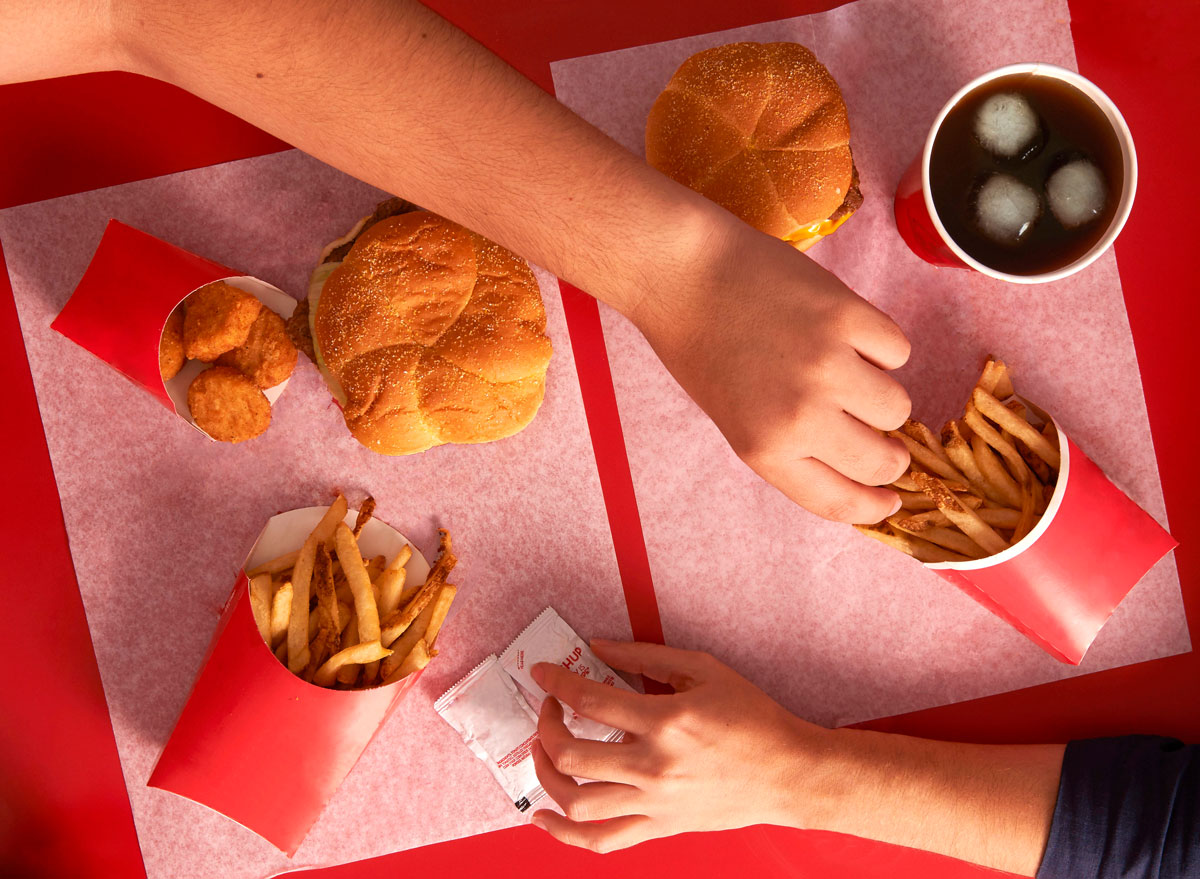
A study in the Journal of Public Policy & Marketing shows that compared to ordering à la carte, you pick up a hundred or more extra calories by opting for the "combo" or "value meal." Why? Because when you order items bundled together, you're likely to buy more food than you want. You're better off ordering your food piecemeal, and when you do, opt for The 100 Healthiest Foods on the Planet.
Don't Drive to Work

Those who drive to work gain more weight than those who take public transportation, according to a study in the British Medical Journal. According to the study, commuting by car slaps an extra 5.5 pounds on your body, whether you exercise or not.
Walk Around

We sit an average of sixty-seven hours a week—that's nine hours a day sitting, eight hours lying down, and only about seven hours out of every twenty-four spent actually moving. Our sedentary jobs now cause us to burn 100 fewer calories a day than we did fifty years ago. That alone translates to gaining an extra ten pounds a year. But a recent study in the Clinical Journal of the American Society of Nephrology found that taking a two-minute walk every hour can offset the effects of too much sitting. Make it a habit to never call a colleague when you can just as easily stop by his or her office to talk. Check out more Ways You Can Lose Weight at Work!
Leave Work on Time

When deadlines pile up, add work hours to the beginning of your day, not the end. When you work later you also eat later and go to sleep later, both of which lead to unwanted pounds. A study in the journal Nutrition Research found those whose last meal was closest to bedtime took in more calories overall throughout the day than those who gave their bodies time to recover before heading off to bed.
Stick to Wet Carbs
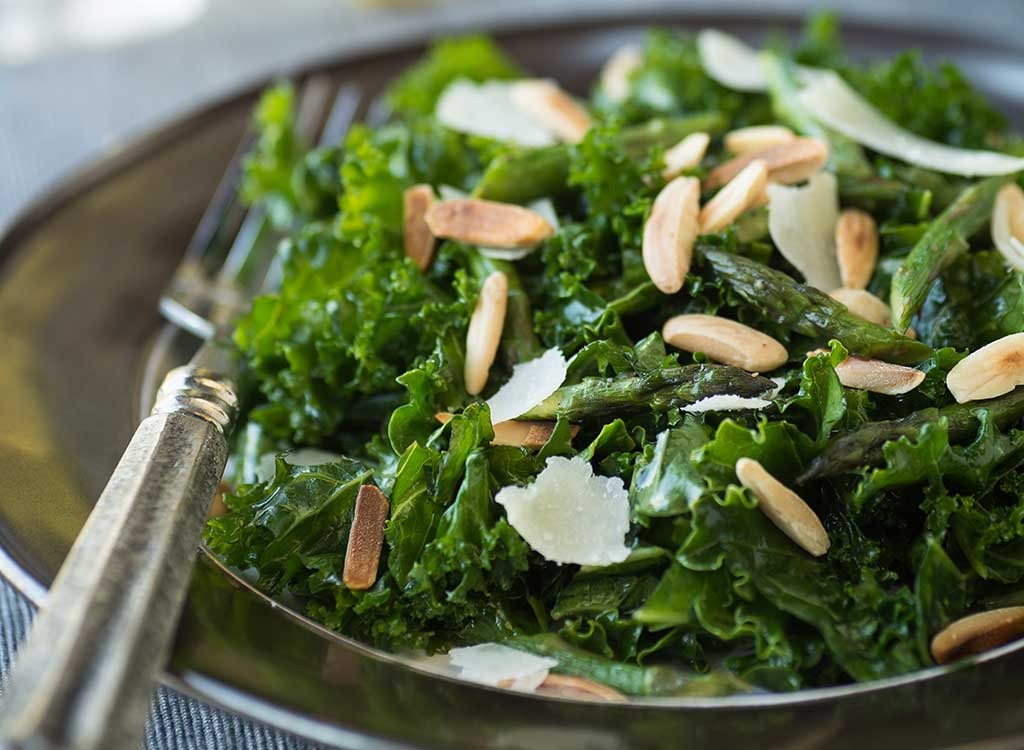
Modern diet gurus have made carbs seem so scary, but new research shows that your fat-burning system actually operates better when you keep it guessing, so don't let yourself get caught in a rut. Eating a variety of carbs is actually desirable, at least for athletes, according to the journal Essentials of Strength Training and Conditioning. Keep in mind, that's not an invitation to gorge on Froot Loops. Instead, try focusing more on "wet" carbs, especially at night. A wet carb is one that naturally has a lot of water in it—stuff like cucumbers, tomatoes, salad greens, and asparagus. Wet carbs allow you to maintain relatively adequate levels of water during the night since you can't drink while you sleep. Staying hydrated overnight means your body will continue to get the nourishment it needs to unveil your abs even while you're dreaming of a faraway beach.
Avoid Family-Style Eating
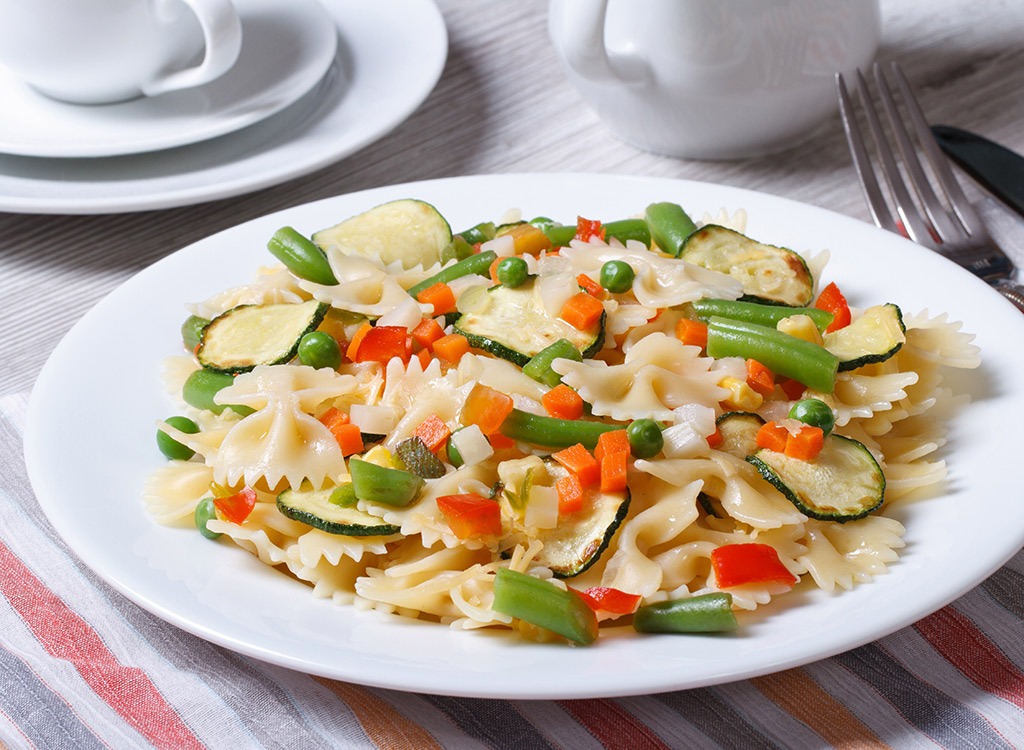
You know how dinner in a fancy restaurant comes served with a beautiful composition and a little sprig of parsley on the side? Do that at home, instead of just dumping everything on a platter and setting it out for the rabble to reach for. A study in the journal Obesity found that when food is served family-style, people consume 35 percent more over the course of the meal. When an additional helping requires leaving the table, people hesitate to go back for more.
Drink Tea
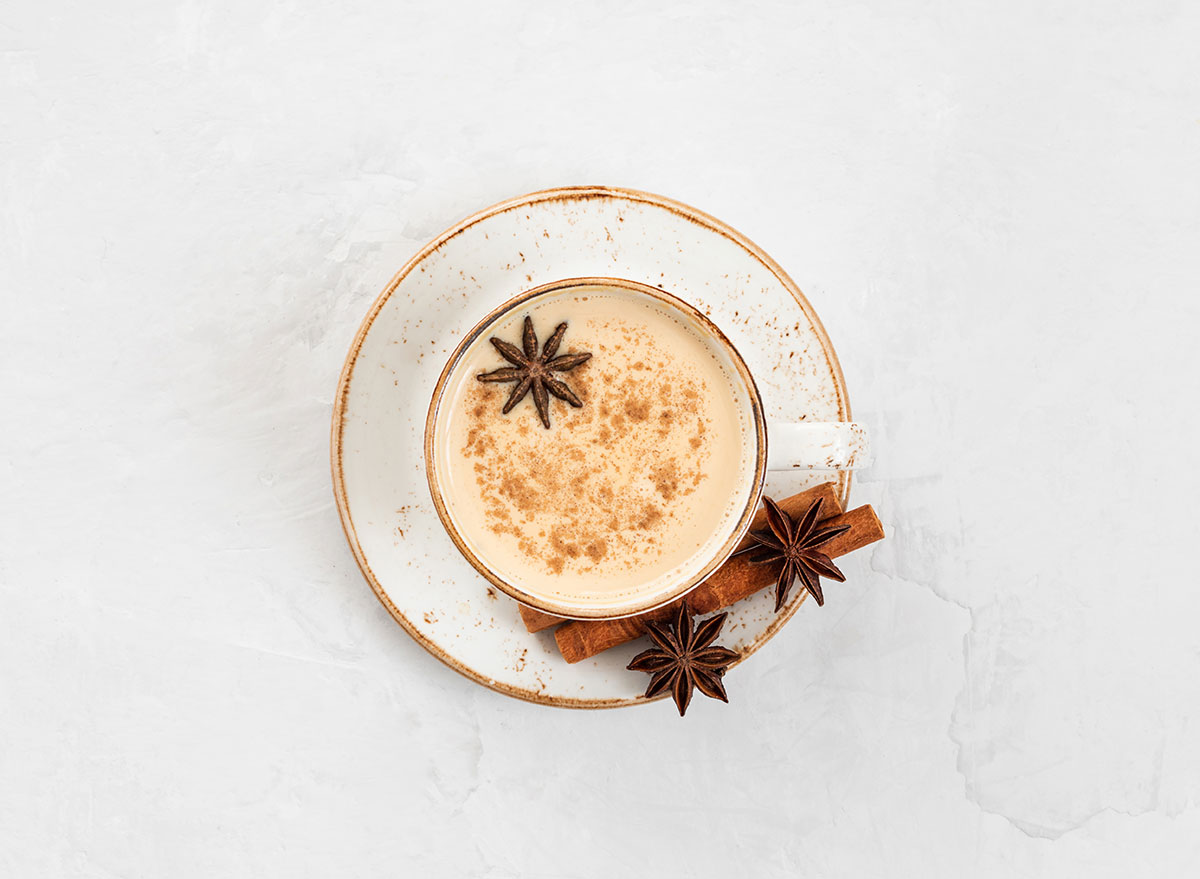
Coffee and especially tea are powerful weight-loss drinks. What's more? Different varieties of tea cause you to lose weight for different reasons. Green tea, for example, acts as a metabolism booster because it unlocks your fat cells, while white tea prevents new fat cells from forming. Stay away from sweeteners and opt for a squeeze of lemon in your tea instead. Lemon can actually enhance the beverage's weight-loss powers. Learn more about the 5 Best Teas for Weight Loss!
Avoid Artificial Sweeteners
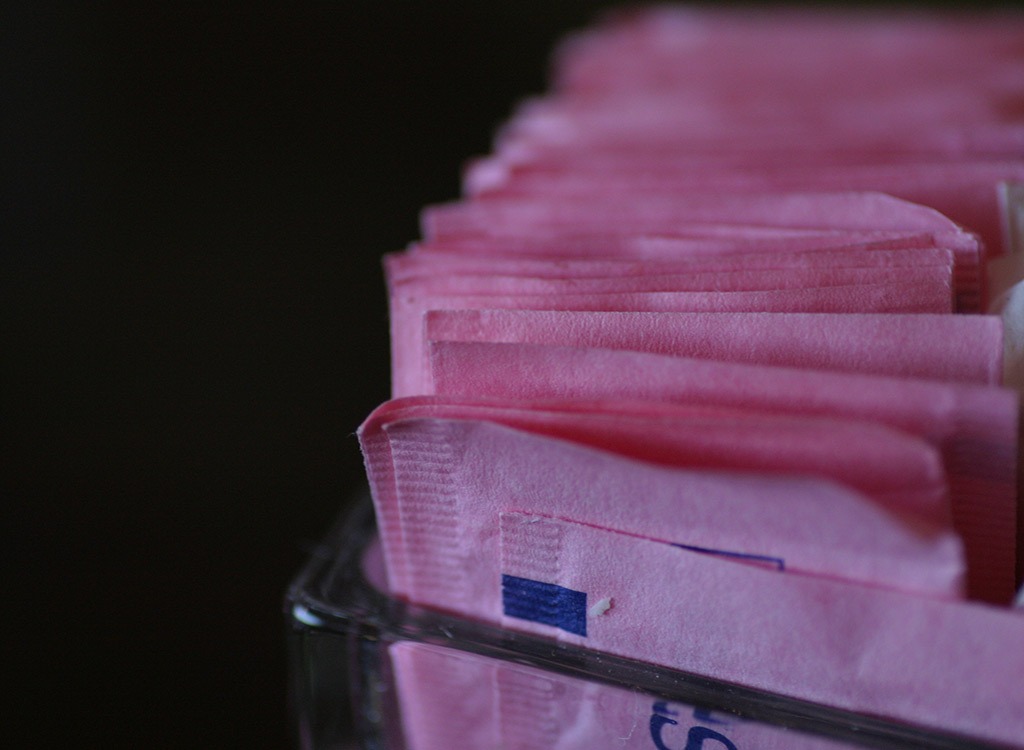
We said you shouldn't put artificial sweeteners in your tea, and if we're being honest, they have no place elsewhere in your diet either, especially if you're on a quest to lose weight. Artificial sweeteners cause belly fat and lead us to seek out additional calories, not to mention they wreak havoc on your teeth, heart, and gut health.
Tamp Down Your Dreams
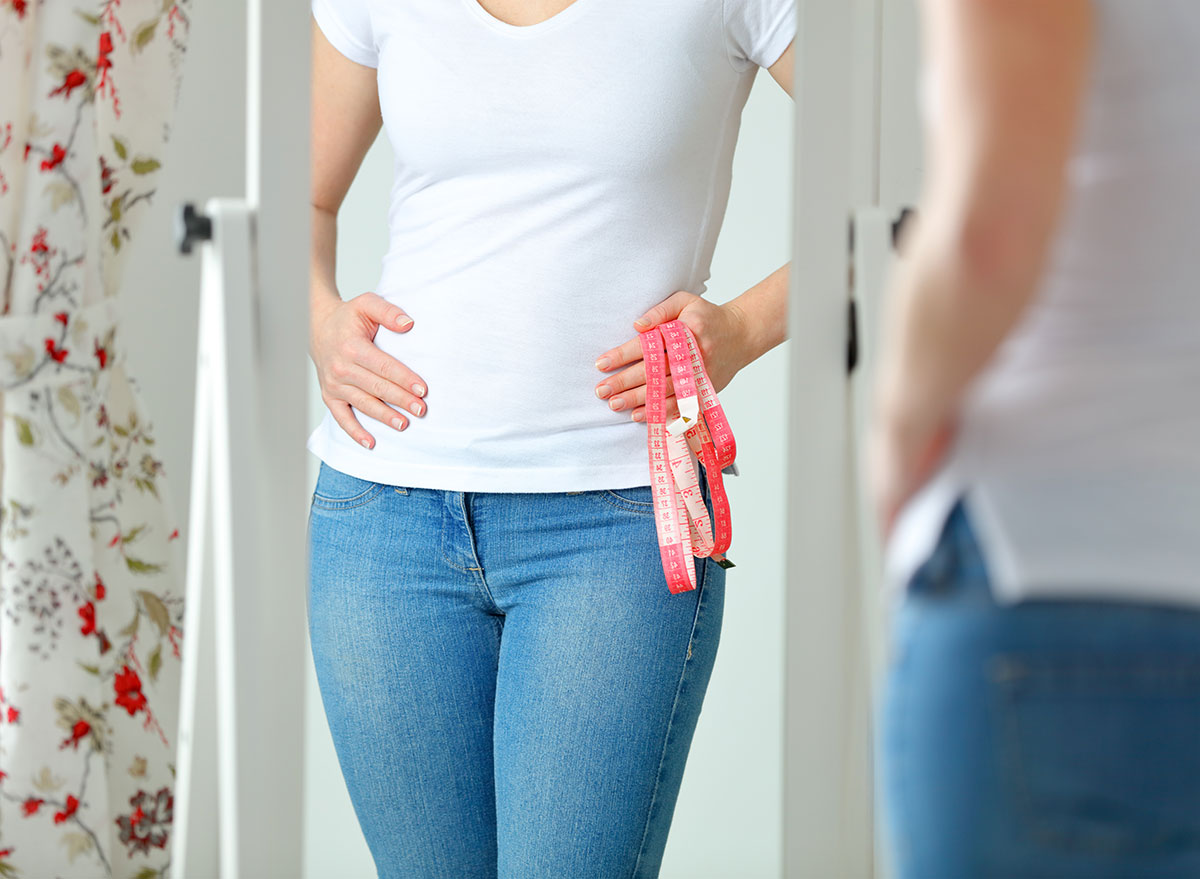
It's okay to dream big, but when it comes to weight loss, you might be better off dreaming about yourself growing big. A study in the journal Cognitive Therapy and Research found that obese women who fantasized about losing weight and showing off their hot new bodies lost an average of 24 fewer pounds than those who harbored negative thoughts—like how terrible they might look if they kept eating poorly. The researchers speculated that negative fantasies about weight loss prepared the dieters to overcome the bumps they encountered on their road to getting healthy.
Be Autonomous

A 2012 study in the International Journal of Behavioral Nutrition and Physical Activity found that if you feel autonomous—in other words, like you have total control and don't need to rely on a diet plan— you are more likely to see long-lasting health changes. And for more weight loss guidance, see The Best & Worst Diets for Weight Loss.
